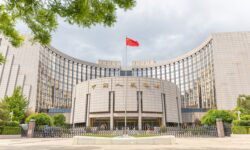Real wages in Japan fell in March, falling for two consecutive years
Data released by Japan show that Japan’s inflation-adjusted real wages fell by 2.5% annually in March, falling for two consecutive years. The data showed the pace of decline accelerated from 1.8% last month as rising costs of living outpaced nominal wages. Japan is seeing early signs of a virtuous cycle of rising wages and inflation. However, workers’ incomes still lag behind rising costs, underscoring the challenges policymakers face in getting companies to raise wages.Some economists say they expect real wages to turn positive sometime in the 2024/25 financial year. Nominal wages, the average total cash earnings per worker, rose 0.6% to 301,193 yen ($1,940.30), a slowdown from 1.4% in February. On the other hand, consumer prices increased by 3.1% year-on-year in March, slightly slower than the 3.3% increase in February, hovering above the Bank of Japan’s 2% inflation target and price growth. Of total cash receipts, regular wages, which determine basic wages, increased by 1.7%, while overtime wages fell by 1.5%, falling for the fourth consecutive month. Special payments such as bonuses and other benefits in March are reduced by 9.4% annually.At annual labor talks this year, Japan’s major companies offered to raise workers’ monthly wages by more than 5 percent, a level not seen in about three decades. But small businesses, which employ seven in 10 workers, are lagging behind, holding back wage gains. Low-wage informal workers also make up about 40% of the workforce. The specter of sluggish wage growth is dashing policymakers’ hopes of achieving healthy economic growth led by durable inflation and stable wages, which are considered a prerequisite for normalizing monetary policy.










